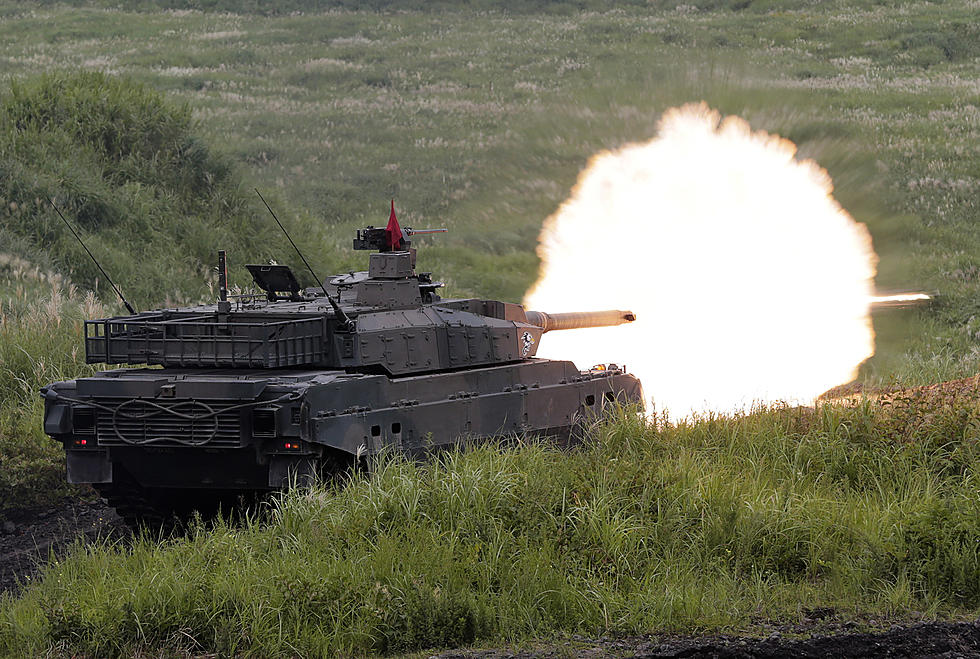![‘Don’t Ask, Don’t Tell’ Policy Comes to an End for the Military [VIDEO]](http://wac.450f.edgecastcdn.net/80450F/tsminteractive.com/files/2011/09/DADT-300x225.jpg?w=980&q=75)
‘Don’t Ask, Don’t Tell’ Policy Comes to an End for the Military [VIDEO]
The policy known as “don’t ask, don’t tell,” which has been in place since the Clinton administration, became a thing of the past at 12:01 a.m. on Tuesday when the United States became one of more than 40 countries worldwide allowing gays and lesbians to serve openly in the armed forces.
“They will no longer have to lie in order to help protect us,” said Senate Armed Services Committee Chairman Carl Levin in a statement. “The end of ‘don’t ask, don’t tell’ is an important victory not just for equality, but integrity.”
One of the servicemembers most relieved about the new policy is airman Josh Seefried, the co-founder and co-director of a group called OutServe, which bills itself as the Association of Actively Serving LGBT Military Personnel. Until now, he’s done his work under the pseudonym of J.D. Smith, and few people knew his actual identity.
Seefried authored the upcoming book, ‘Our Time: Breaking the Silence of ‘Don’t Ask, Don’t Tell’,’ under his assumed name, and is pleased he’ll now be able to claim the work as his own.
“The book is really important to me because this ties into people finding out that there are other gay military members out there serving,” he said. “I remember a book I read when I was in college done by a gay military officer and it gave me courage and I hope this book does the same.”
OutServe publishes a magazine, as well. On Tuesday, the ‘Repeal Issue,’ available on some military bases and online, will feature profiles of 101 active service members who openly state they are gay.
One of them, Air Force Staff Sgt. Jonathan Mills, writes, “Now we are stepping forward, to a new day, a new life. A life of openness, integrity, of honor. At last, our country has accepted us — not for who we love or how we love but who we are.”
The repeal of DADT also opens the door for the 14,346 servicemembers discharged under the policy to re-enlist.
“My hope is to get back in. I’ve talked to recruiters. I’m started to look at that process,” said Michael Almy, who was an Air Force officer for 13 years before he was forced out in 2006.
“I’m hoping that I can at least get back in there where I left off and resume my career — hopefully, just be a role model,” he added. “Because that’s what we need right now; we need gay and lesbian role models, officers and enlisted alike, who can serve honestly and openly next to their straight counterparts and show no detriment to the mission whatsoever.”
Below is the letter sent by the Army that announces the end of DADT, as well as a moving video posted by President Obama with stories from four people who served in the military during DADT.
[CNN]
More From The Moose 94.7 FM



![Big Sky Bravery Program in Montana For Active Duty Special Operations Soldiers [WATCH]](http://townsquare.media/site/13/files/2016/08/Big-Sky-Bravery-SingleSixMedia-YouTube.jpg?w=980&q=75)


![Man Plays ‘Taps’ On His Trumpet Every Day And Brings His Neighborhood To A Stop [VIDEO]](http://townsquare.media/site/13/files/2015/07/hqdefault22.jpg?w=980&q=75)

![How Do You “Come Out”? YouTube Actually Has Great Inspiration [VIDEO]](http://townsquare.media/site/13/files/2013/07/hqdefault1.jpg?w=980&q=75)
